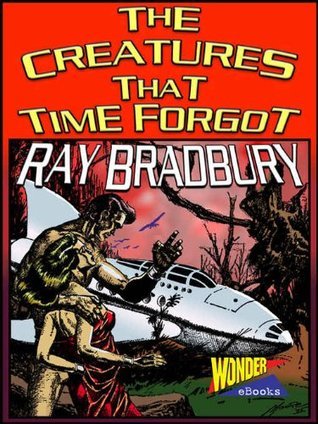
The Veldt
Book Description
In a world where technology caters to every desire, a family's home turns into a playground of dark secrets. The children's seemingly innocent fascination with a virtual African veldt distorts into a haunting battleground, pitting their parents against an unforgiving twist of innovation. As the home becomes a reflection of their innermost fears and desires, tensions escalate, and trust erodes in a chilling game of control. Emotions run high, and the line between reality and fantasy blurs. Can the family escape the sinister grip of their own creation, or will the consequences of indulgence consume them all? What happens when imagination becomes a weapon?
Quick Book Summary
"The Veldt" by Ray Bradbury is a haunting science fiction tale centered around the Hadley family and their technologically advanced "Happylife Home." The house automates all daily functions, including caring for the children, Wendy and Peter, whose virtual nursery can create any environment they imagine. The children become obsessed with a simulation of an African veldt populated by lurking lions. Their parents, George and Lydia, grow increasingly disturbed as they realize the nursery reflects their children's dark emotions and violent fantasies. Attempts to reassert parental control escalate tensions, and the boundaries between technology, imagination, and reality vanish. The story climaxes in a chilling twist, revealing the dangers of unchecked technological indulgence, emotional neglect, and the surrender of parental authority to machines.
Summary of Key Ideas
Table of Contents
Dangers of Unchecked Technology
The story introduces the Hadley family, who live in a futuristic house designed to fulfill every need, effectively making life effortless. Central to the household is the nursery, a powerful virtual reality room that responds to the children's thoughts and emotions. Wendy and Peter, the children, develop a fascination with an African veldt simulation populated by realistic lions, which soon becomes their preferred environment. The parents, George and Lydia, grow unsettled by the vividness and recurring violence of these scenes, sensing a deeper issue within their children's minds.
Loss of Parental Authority
As the parents grapple with their diminishing roles, they question the benefit of such intrusive technology. George and Lydia consult a psychologist, who warns that the nursery is an unhealthy outlet for their children's suppressed feelings and that the children are using the room to express resentment and hostility. The psychologist advises that the nursery—and the house itself—should be shut down to allow for healthier family dynamics and emotional growth, highlighting their growing dependency on machines at the expense of meaningful relationships.
Power of Imagination and Fantasy
The Hadleys attempt to discipline their children by turning off the nursery. This decision triggers rebellious outbursts from Wendy and Peter, who plead for the room's return. The children's increasing attachment reveals the power of imagination and the escape it provides from parental boundaries. When the parents try to enforce consequences, the children cleverly manipulate them, blurring the line between fantasy and reality as the nursery becomes a weaponized extension of their subconscious desires.
Emotional Neglect and Alienation
Emotional neglect emerges as a key theme, as the story suggests that the parents' reliance on technology to raise and occupy their children has left them disconnected and incapable of understanding their true feelings. Rather than nurturing or guiding, the house replaces parental engagement. This emotional distance fosters resentment, fueling the children’s use of the nursery as an outlet for their frustrations, ultimately turning their virtual fantasies against their parents.
Consequences of Escapism
The climax arrives when George and Lydia, realizing the danger, enter the veldt simulation, only to be trapped by their own children. The virtual lions, once thought harmless, become lethally real, demonstrating the unforeseen consequences of their technological indulgence and familial neglect. The story ends with the psychologist discovering the tragic results, underscoring Bradbury’s dark warning about the perils of substituting genuine human connection with technological convenience and the destructive potential when imagination is left unchecked.
Download This Summary
Get a free PDF of this summary instantly — no email required.





